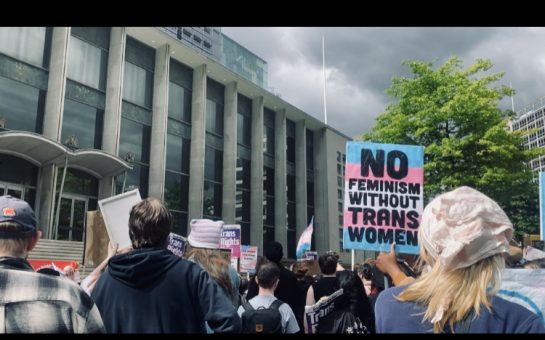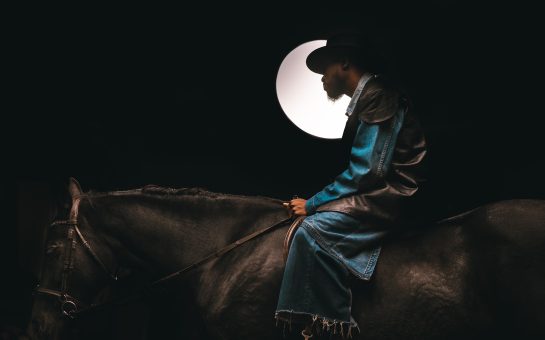To celebrate LGBT History Month, MM talk to LGBT figures from across Greater Manchester about their experiences of coming out and what progress they think the city still has to make towards equality.
Today is the turn of Apprentice star Sanjay Sood-Smith, who was a University of Manchester student long before his quest to become Lord Sugar’s next business partner.
Sanjay worked at Eden on Canal Street alongside his studies and is still a regular in the village. He is about to start working with LGBT charity Stonewall on a project to help educate young people about being gay.
How old were you when you first realised you were L/G/B or T?
When I was 13 and I remember watching the first Mission Impossible film and quite fancying Tom Cruise, so that was when I first thought there could be something there. But when I fully understood and came out as being gay I was 17.
Could you tell us your ‘coming out’ story?
I came out to my friend when I was 17. I’d already been dating someone for a year before I actually told any of my friends, but I told my friend Faye when I went round to her house after school one day. I used to go round to her house after school every single day anyway and I phoned her up the day before and said ‘can I come round and see you’? And she said ‘well yeah, you day every day’. So when I went round she was worried, and apparently spent the whole day worrying I was terminally ill or had some awful disease.
So I sat down and – after lots of heavy breathing and shaking – I came out with it and said ‘I’m gay’. And she looked at me with a look of utter relief and said ‘Thank god for that’. So it was a good reaction to have. And it just went from there really.
From coming out to now, what are lessons you have learnt about yourself with regards to you and your sexuality?
I think it has definitely made me very open minded in my outlook of all different types of people. Because if you’ve never faced any problems of being different in some way to people, it might be quite difficult to empathise with some of the issues they have to face.
But growing up as someone gay and half Indian – where you do face prejudice sometimes and you do get called names – gives you an ability to have a very open outlook on all different lifestyles.
It’s a good lesson in being able to empathise with lots of different people and appreciate them as individuals rather than because they fall into any particular group or category.
What are the biggest challenges still to overcome in the UK for the LGBT community?
At the moment there are almost two gay stereotypes. You’ve got the sort of camp gay stereotype and the butch, muscly stereotype. I think acceptance of gay people is a lot higher and now it is about getting people to understand that gay people are a whole spectrum and don’t just fall into two categories.
There is also a big issue with the language we use, because I think the word gay is still used a lot as an insult. Homophobia is decreasing but you still see that in everyday language which needs to be tackled.
I’m going to be doing some work with Stonewall, where I go into schools and talk about my experiences of being gay, to try and support the kids who are gay themselves by giving them someone they might be able to relate to, but also to try and normalise it for the kids that aren’t. Our number one priority should be educating people at school age about these issues so eventually you’ll have a generation of adults with no prejudices because they received that education when they needed to.
And what about for the rest of the world?
I’ve got a friend who said to me that being born in the UK as a gay man is like winning the lottery in a lot of respects.
If you think of all the billions of people that live on the earth, the probability of being a gay man born here are really slim. If you compare the way gay people are treated here with parts of Africa or the Middle East, where in some places it is still punishable by death, we are extremely fortunate to live somewhere so progressive, despite there still being a long way to go.
Clearly there is a huge amount that needs to be done to move forward and in some cases I can’t see how the attitudes of entire nations and politics are going to be changed in the long term. It seems like a massive undertaking but if you look at how perceptions of race have changed from 150 years ago, when slavery was still legal, it is possible.
I think it will require political pressure from countries such as ourselves to be able to do that. I don’t think a lot of these places are going to change without that pressure. And I think it is also about offering asylum to people that are experiencing persecution and are having their lives threatened because of who they are.
What would you say to your young self or a young LGBT person with the knowledge you have now about coming out?
Everyone’s journey is different and I think it is important to come out when the time is right. There is no rush, and just make sure you talk to people you trust and talk about your feelings because the worst thing to do is keep things bottled up. Look to positive role models and influences.
There is a website [www.rucomingout.com] that has been set up as a support base and has lots of shared stories of people’s experiences in coming out. Anyone who is struggling with coming out can go on there and read those stories and get an understanding of how it has happened to other people so they can hopefully take that into their own lives too.
There are a lot more available resources than when I was coming out in terms of the internet and TV, which doesn’t necessarily make it easier, as it will always be a hard thing to do, but there are more ways for people to understand themselves out there now.
How does being gay impact on your job/career?
I’ve worked in banking for six years and it was a real concern to me that it could hinder my career in some way. Luckily my first placement was in a call centre with a gay boss, so it was probably the best place I could have possibly ended up. I was able to be myself from the word go and didn’t have to hide it, which helped me.
I worked for Lloyds Banking Group, who are excellent in their policies for supporting gay people in their job. That’s where the actual business case for supporting LGBT people in the workplace comes from. People are more productive if they are able to act as themselves at work. I was very lucky, but the idea of the ‘glass closet’, where gay people can find it hard to progress in business because of their sexuality and people’s preconceptions, can make it difficult to have to come out every time you start a new job.
Even on the Apprentice, when we were sat in a room on the first day talking about our families, one of the lads turned round and said to me ‘so what about you Sanjay do you have a wife or a girlfriend’?, and I said ‘no but I’ve got a boyfriend’. It’s moments like that where people who aren’t confident in themselves might feel a real sense of stress and anxiety.
There were no problems or issues of me being gay by any of the candidates in the house, but it was just quite funny that that assumption still exists.
What are your thoughts on Manchester’s LGBT scene? Is the Village still the heart of it in your mind?
My view is that Manchester has got the best LGBT scene in the country actually. I’ve lived in Brighton, London, Bristol and Manchester, and I think Manchester wins hands down in terms of where you’d want to go for a night out.
Canal Street and the gay village have a very active gay community and culture with the work of the LGF and Gay-dio. I came up last week to launch the Hate Crime Awareness week and the commitment of the GMP along with the Manchester City Council and the Crown Prosecution Service that really supports that issue is amazing.
You’ve got the village angels who look after people on a night out, so I think if you look at it from a holistic view of everything from nightlife to how everyone works together, I think Manchester is probably the most progressed place in the country from an LGBT perspective.
What makes Manchester a good place to live in for members of the LGBT community?
I think Manchester is such a vibrant and multicultural city. I remember when I was looking at my university choices; Manchester was the fifth and final one I went to visit. And I got off the train at Piccadilly, walked down Portland Street and just had this feeling of ‘I love this city already and this is where I want to be’.
It has an energy and a vibrancy that makes it very appealing to the LGBT community, and I think the fact that Manchester has embraced the LGBT community in the way it has makes it a great place to live.


